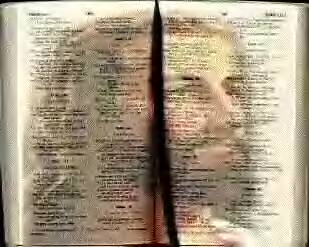
It's a battle over Bibles behind bars
June 18, 2006
Usually, judges throw the book at prisoners. This time a federal judge is taking the Book away from prisoners in Iowa.
U.S. District Court Judge Robert Pratt has joined with Americans United for Separation of Church and State and ordered a halt to a Bible-based prison program.
Pratt ruled against the InnerChange program run by Prison Fellowship at the Newton, Iowa, prison, on grounds that, heaven forbid, the prisoners might read the Bible and convert to the Christian faith.
Judge Pratt has ordered the state to dismantle the program and is demanding that Prison Fellowship return the $1.5 million it has been paid to help finance the effort.
Pratt should not have the last word.
Prison Fellowship will appeal the ruling and eventually the case should make its way to the U.S. Supreme Court. In Prison Fellowship's favor will be evidence that prisoners are not forced into the program. Prison Fellowship has attempted to use government money for the administrative side of its program, not to buy Bibles.
If the court rules in favor of the position of Americans United, plenty of other nonprofit groups will be in big trouble. Any nonprofit group with any hint of religious faith could find itself under threat of losing federal aid. The ruling would rip apart the juvenile justice system, which depends heavily on faith-based groups to help offenders.
As this case works its way through the courts, judges may want to pay attention to history that Judge Pratt ignored. The authors of the First Amendment prayed together and quoted from the Scriptures. Congress approved federal aid to faith-based missions to Indian tribes in the early years of the nation. The Northwest Ordinance, adopted by Congress at the time of the First Amendment, declared that religion, morality and knowledge were necessary for good government.
Groups like Americans United have campaigned to cleanse the public square of the Bible and Christian faith, and sometimes they find judges to go along with their crusade. Yet the First Amendment says: "Congress shall make no law respecting an establishment of religion, nor prohibiting the free exercise thereof." The idea was to avoid the establishment of a government church, such as the Church of England.
The attempt to use the courts to drive religious faith out of the public sphere has been a practical disaster. The Ten Commandments are accepted on statehouse grounds in Texas under one Supreme Court ruling, but not inside Kentucky courthouses under another top court ruling. Public officials can hardly quote a Bible verse in public without getting a legal opinion first.
In Iowa, Pratt's ruling suggests he is a power-grabbing federal judge with too much idle time on his hands. His Monday-morning quarterbacking of prison officials suggests he ought to get off the bench and run a prison himself. But his ruling is part of a larger problem of judicial activism, with judges interfering with the other two branches of government when no real constitutional issues are at stake.
Behind this ruling is a political attack on President Bush's attempt to open the door to faith-based approaches to social services. Judge Pratt and Americans United ought to look for a different tool to score political points against the president's efforts. The victims in this lawsuit are the prisoners who could lose the help offered by Prison Fellowship or other groups in order to return to society and avoid more crime.



No comments:
Post a Comment